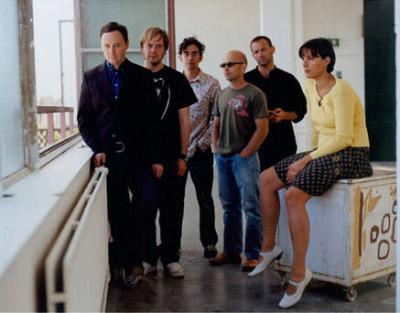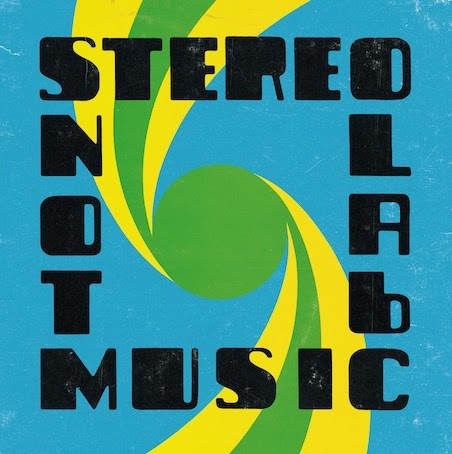Stereolab is one of those bands where it almost seems pointless to write a review. Their fans are fiercely dedicated and almost unanimously unflagging in their enthusiasm for “The Groop”. Certainly Stereolab is in a class of its own. There is no other group, or Groop even, that sounds like they do. With their latest release, “Not Music”, they give us a heaping helping of electropop goodness.

The fact that Stereolab is in a class by itself can be seen as both a good and a bad thing. They are instantly recognizable, which allows them a certain amount of freedom because it seems that no matter what they do they can never not sound like Stereolab. I suppose this speaks to their reliance on the sounds of retro synths as well as to their melding of jazz, rock, electronic and lounge influences. It also speaks to their songwriting style and the way that they have branded themselves over the years as standing apart from most musical trends. It seems as though this group has their own language when it comes to naming albums and songs. The titles that Stereolab chooses for their releases seem to suggest inside jokes that only the band is in on in which they wryly comment on some abstract metaphysical idea, flat out absurudist humor, or references to food. Stereolab is an extraordinarily prolific band. In their time together they have released so many full lengths, EPs and collections that all but the most dedicated followers of The Groop can keep up, or even keep track.
“Not Music” was not originally conceived of as an album, rather these tracks were culled from the sessions of the band’s last full-length “Chemical Chords”. The fact that “Chemical Chords” as an album was strangely so-so and not quite up to the usual Stereolab standard makes this latest effort (not-effort?) very welcomed. This album is as solid as Stereolab albums come. An instantly recognizable jazz inflicted version of vintage synth driven lounge krautrock. The vintage synth sounds are mixed seamlessly with jazz ensemble stalwarts like a brass section and vibraphone. Imagine if Kraftwerk had traveled back in time to the 1950s and then hopped into their Delorean again (well they are European so I suppose that they would travel via Police Box) and went 10 or 20 years into our future, that is the sound of Stereolab. So well defined and distinguishable is their sound that it is to the point where they should actually go by the name Stereolab™. If anyone else even came close to imitating them it would be so obvious that they were completely ripping off Stereolab that the imitator would be instantly scorned and run out of town.

That being said, this album specifically is no different from any other album you have already heard from Stereolab and, unfortunately, this may be the last album that we ever hear from them. I say “unfortunately” not because this is a disappointing album, quite the opposite is true, but because they have been producing a steady stream of regularly fantastic work since the early 1990s. The band announced an indefinite hiatus in April of 2009 and singer Lætitia Sadier has begun touring as a solo artist. Her voice being so linked to the sound of Stereolab that I imagine she is going to have an extraordinarily difficult time separating her solo work from the work of this group.
Songs on this album like “Silver Sands” with its incessantly chugging rhythm bring the Kraftwerk influence front and center. That song sounding a lot like “Trans Europe Express” in, I feel, a very obvious way. The fact that Stereolab drags it out for over 10 minutes shows how unashamed they are in displaying the importance of their influences. The motorik backbone of “Silver Sands”, “So Is Cardboard Clouds” and “Pop Molecules” and the minimalistic opening of “Aelita” seem to be coming from a completely synthetic place but Stereolab never allows their music to come off as cold, unemotional or unhuman. Much to the contrary Stereolab, with their jazz influence, sometimes politically charged lyrics, and absurd/dada sense of humor show a very human side even if sometimes one can’t quite picture what instruments are being played, or if humans are even responsible for producing the recorded sounds. Sadier’s voice has very much to do with softening the sometimes machine-like sound of the group.
Hopefully this will not be the last that we hear from Stereolab. If we don’t hear from them for a while it’s good that they left us on a high note. Despite this album not really being an “album” in the traditional sense, but more a collection of songs from previous sessions, it still holds up with lots of great Stereolab™ songs worth hearing.

